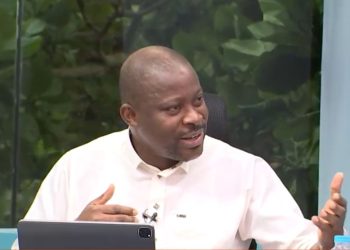The Permanent Court of Arbitration (PCA) in The Hague, Netherlands, has ruled that the laws of Ghana shall apply to an international arbitration instituted by Australian mining company, Cassius Mining company, against the government of Ghana (GoG).
Cassius is seeking about $300 million in damages with a claim that the GoG breached its contractual obligations and the laws of the country by not renewing its prospecting licence to enable it to engage in mining in the country.
Ruling on the preliminary issues, the tribunal held that the seat of the international arbitration ought to be Accra, Ghana, and not London, United Kingdom as argued by Cassius mining.
The tribunal gave the ruling that the seat of the arbitration shall be Ghana and not in the United Kingdom after it upheld the submission of the Attorney-General (A-G) and Minister of Justice, Godfred Yeboah Dame.
Under the rules of international arbitration, an arbitration is subject to the laws of the place or seat of arbitration and the seat of arbitration might be different from the venue where the arbitration proceedings take place.
In the instant case, although the venue of the arbitration proceedings is London, the tribunal has determined that the seat of arbitration is Accra, Ghana. What this means is that the arbitration is subject to the supervisory jurisdiction of the High Court of Ghana and the Alternative Dispute Resolution Act, 2010 (Act 798) of the country.
A party aggrieved by the arbitral award or any decision by the tribunal can also challenge it by invoking the jurisdiction of the High Court in Ghana pursuant to Act 798.
Jurisdiction
However, the tribunal rejected the GoG’s contention that it had no jurisdiction to entertain the action and also refused to stay proceedings of the arbitration as sought by the GoG.
The tribunal further directed the parties to agree on the timetable for the hearing, and for them to also file their respective processes for the substantive case to be heard.
Legal dispute
Cassius Mining has been embroiled in legal battle with the government since 2018 over what it claimed was unfair treatment and breaches of mining laws by the GoG’s failure to extend the term of the company’s Prospecting Licence Agreement (PLA) after exercising its contractual right of extension.
Per court records, on October 12, 2016, Cassius Mining Limited applied for a prospecting mining licence to explore minerals in Talensi in the Upper East Region. On December 28, 2016, the government, through the then Minister of Lands and Natural Resources, granted the mining firm a prospecting licence for two years, which was to expire in December 2018.
On June 14, 2018, Cassius Mining alleged that the government had failed to uphold its part of the contract by not renewing the prospecting licence which was set to expire in December 2018.
However, the A-G rejected the argument of the mining firm and submitted that it had no proper PLA as the purported licence was never ratified by Parliament as stipulated by Article 268 of the 1992 Constitution.
Different forums
The dispute has taken different dimensions starting from the PCA and the courts of Ghana. In March last year, the A-G successfully challenged the jurisdiction of the PCA to hear the dispute after Cassius Mining initially filed for arbitration under the United Nations Commission on International Trade Law (UNCITRAL) Arbitration Rules before the PCA.
Raising a preliminary legal objection, Mr Dame argued that the GoG had not consented to the PCA administrating the arbitration and also per the PLA, any dispute between the two parties must be resolved in Ghana in accordance with Act 798.
The PCA upheld the objection by Mr Dame, declined jurisdiction over the dispute and refused to constitute a panel to hear the dispute. The current ruling means that the PCA will entertain the action but under the rules of Act 798 of Ghana.
Injunction
In July 2023, the Commercial Division of the Accra High Court placed an injunction on Cassius Mining Limited from going for international arbitration. The court, presided over by Justice Akua Sarpomaa Amoah, imposed the injunction upholding an application from the A-G.
The A-G had argued that per the PLA, any dispute between the mining firm and the GoG ought to be settled by arbitration in Ghana in accordance with the Alternative Dispute Resolution Act, 2010 (Act 798) and not by an international arbitration panel.
In upholding the application for injunction, Justice Amoah held that Cassius Mining failed to convince the court that it would suffer greater hardship, if the arbitration was done in the country.
On the other hand, the judge was of the view that the GoG stood to suffer greater hardship if the arbitration was done outside the country. “The balance of convenience also tips in favour of the applicant (A-G) as allowing the respondent to resort to international arbitration is not only arbitrary but will incur costs on the Ghanaian taxpayer,” Justice Amoah held.
emma.hawkson@graphic.com.gh



